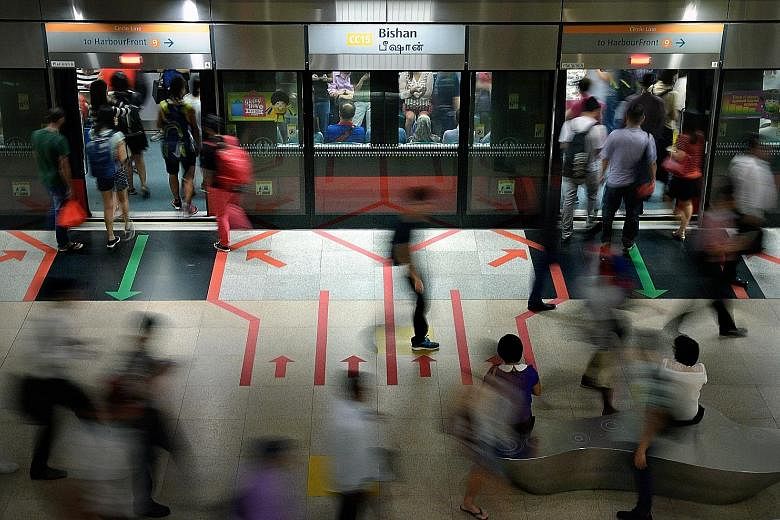While Temasek Holdings is said to be considering a buyout of SMRT - just days after the Government announced it will take over the transport operator's rail assets - it is unlikely to be a move towards nationalisation, said analysts.
This is because the Government intends to keep the rail market contestable and to retender the operation of rail lines more often, they pointed out.
SIM University economist Walter Theseira said: "For nationalisation to occur, SMRT will have to be delisted and turned into a statutory corporation under the Land Transport Authority's (LTA) or Ministry of Transport's control.
"I find this move unlikely because, in the long run, the Government wants to keep the option open to have the rail market be contestable. It is not credible to have a government agency competing with other private companies in a tender exercise."
Yesterday, sources said that Temasek, which owns 54 per cent of SMRT, is considering an offer to buy out the transport operator and take it private. The firm is valued at close to $2.4 billion.
The news follows last Friday's announcement of a new rail financing framework, under which the LTA will take over all the operating assets of the North-South, East-West and Circle lines, as well as the Bukit Panjang LRT Line, from SMRT for $1.06 billion.
Senior lecturer Park Byung Joon, who is also from SIM University, said that should SMRT become fully owned by Temasek, a Singapore investment firm owned by the Government, it would still be a long way from nationalisation.
Dr Park said that for nationalisation to occur, rail operators must be fully owned and answerable to the Government - such as in Seoul - and this will not be the case for SMRT. Instead, SMRT will be under an investment firm and will still have to turn in healthy profits.
Still, analysts reckoned that if Temasek were to take over SMRT, it could lead to the transport operator's objectives being realigned, to be more on track to meet commuters' needs and expectations.
Said Dr Theseira: "A publicly owned company is subject to short-term pressures by shareholders to maintain earnings and this can be incompatible with making the long-run investments necessary to have a reliable rail network."
Following two massive train breakdowns in December 2011 on the North-South Line, a committee of inquiry found that SMRT had not invested enough to maintain the rail system.
Transport researcher Lee Der Horng from the National University of Singapore also said: "While SMRT will remain private, it will be answerable to only one shareholder, which is Temasek, and not others, who could be more commercially driven."
Dr Lee said Temasek's offer of a buyout - should it happen - is not unexpected, since under the new rail financing framework, SMRT's profitability will be affected.
Under it, SMRT is expected to post an average Ebit (earnings before interest and taxes) margin of 5 per cent - about one-third of what it made in the last five years.
A risk- and reward-sharing formula under the new framework will allow the Government to charge a higher licence fee, should SMRT make more, but it can also reduce the fee, should SMRT's margins be affected.
"I am not totally surprised, since SMRT's future profitability has been more or less limited. The buy-over by the largest shareholder sounds like an intuitive move," Dr Lee said.
Dr Park said that SMRT will likely be a low-risk, stable-returns investment, and one which makes commercial sense for Temasek to add to its portfolio.
Still, the potential buyout by Temasek is a significant move.
Said Dr Theseira: "If SMRT does go private, the period during which the firm was publicly listed will be seen as being an experiment which did not work out that well. One of the lessons could be that shareholder and stock market pressures may not be well aligned with running an efficient and reliable rail system."


